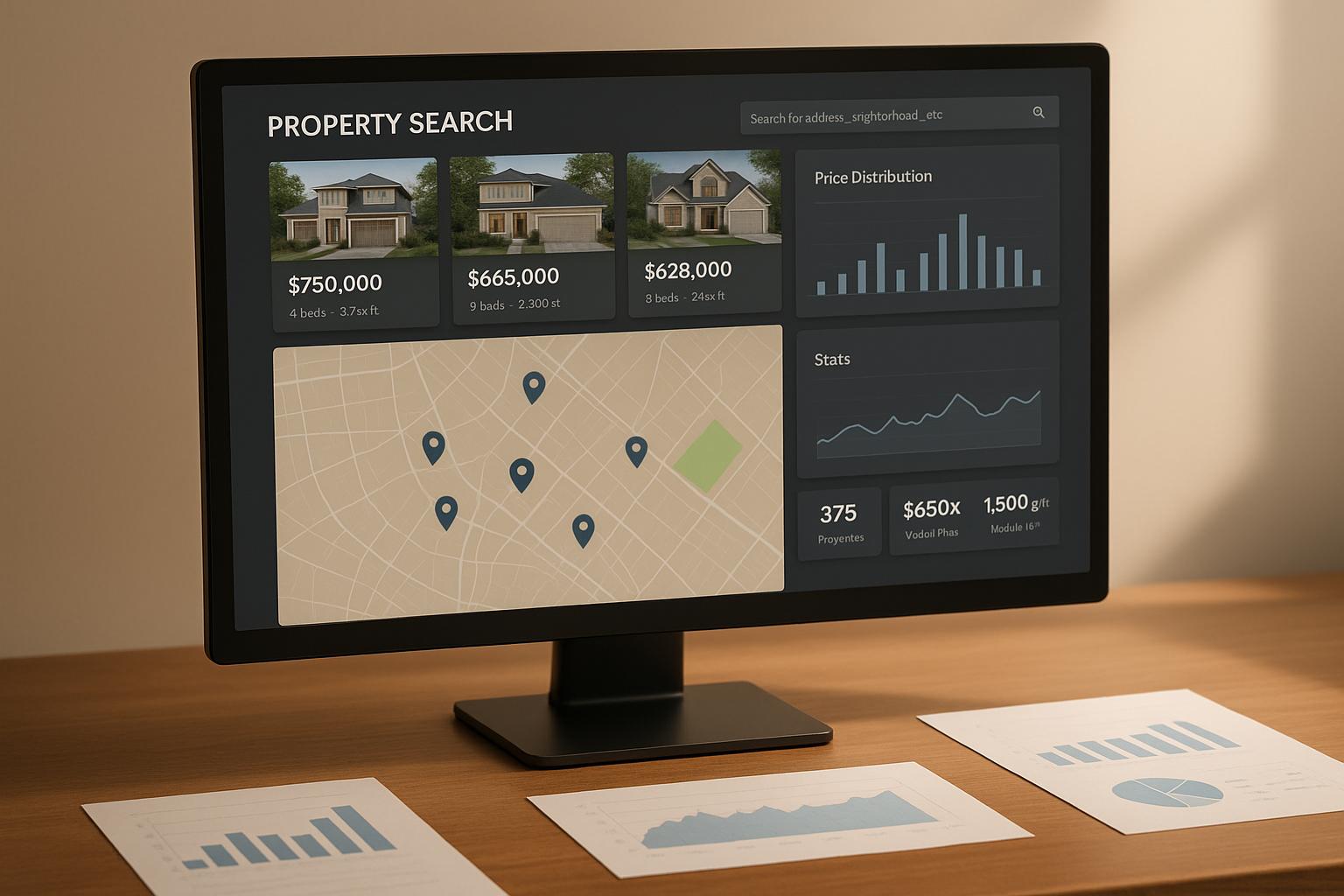The real estate sector, a cornerstone of the U.S. economy, is undergoing profound changes. With a total asset value of $70 trillion, employing 14 million people, and contributing $600 billion in local taxes, the industry is vital not only for economic stability but also for public infrastructure, including funding for local education. However, rising interest rates, escalating labor costs, housing shortages, and shifting land-use patterns have created significant challenges. Enter PropTech and Agentic AI – technologies poised to redefine how real estate professionals manage, operate, and innovate their businesses.
This article explores key insights from a thought-provoking panel discussion featuring industry leaders, including Farhan Ibasi from New Holdings, PJ Muckford of Revise, and Ben, founder of Grotto AI. Together, they unpack how emerging technologies are driving operational efficiency, improving tenant experiences, and uncovering untapped opportunities in real estate.
The Current State of Real Estate and PropTech’s Role
The real estate sector is in flux. Post-pandemic shifts in work habits, such as remote and hybrid work models, have drastically impacted the commercial office market. High vacancy rates in urban office spaces contrast with rising demand in multifamily housing and flexible rental solutions. Amidst these challenges, PropTech has emerged as a transformative force.
What Is PropTech?
PropTech (property technology) encompasses innovative tools and platforms designed to optimize various aspects of real estate, from property management and tenant interactions to construction and investment analysis. Central to this evolution is Agentic AI, which leverages artificial intelligence to automate tasks, analyze massive datasets, and personalize user experiences. From predictive maintenance to AI-driven leasing assistance, these technologies are reshaping the industry.
Key Applications of PropTech and Agentic AI
The panel shed light on the diverse range of PropTech applications, categorizing them into distinct areas of innovation. Here’s how emerging technologies are being applied across real estate verticals:
1. AI-Powered Valuations and Analytics
AI tools now assist in forecasting property values, rents, and investment trends. By leveraging big data, real estate professionals can make data-driven decisions with greater accuracy. Automated valuation models (AVMs) have become a staple for investors seeking to assess property potential in real-time.
2. Virtual Assistants and Chatbots
Tenant and buyer support are being streamlined through AI-powered chatbots that handle inquiries, schedule property tours, and guide renters through the leasing process. These solutions offer round-the-clock assistance, improving responsiveness and freeing up staff to focus on higher-value tasks.
3. Property Management Automation
From tenant screening to lease management and predictive maintenance, automation is revolutionizing property operations. Internet of Things (IoT) sensors, for instance, enable smart monitoring of equipment, preventing issues before they escalate into costly repairs.
4. Smart Buildings and Energy Efficiency
PropTech integrates energy management systems, optimizing utilities like lighting, heating, and cooling. This not only reduces costs but also aligns with sustainability goals, a growing priority for both investors and tenants.
5. Immersive Technologies
Augmented and virtual reality tools are transforming property marketing. Prospective tenants and buyers can now take immersive 3D tours of properties, even from remote locations, enhancing convenience and engagement.
6. Blockchain for Real Estate
Blockchain technology is gaining traction for secure digital ledgers, smart contracts, and tokenized ownership. These innovations aim to streamline transactions and reduce fraud in property deals.
Challenges in PropTech Adoption
Despite its promise, integrating PropTech into real estate practices is not without hurdles. Resistance to change, data hoarding, and the fear of job displacement are key barriers that professionals must navigate.
1. Data Hoarding and Transparency Issues
Panelist PJ Muckford highlighted a persistent issue: brokers and landlords often hoard data to maintain competitive advantages. For instance, some landlords intentionally misrepresent property availability to force brokers to contact them directly, leading to inefficiency. A lack of data transparency hinders innovation and prevents the industry from realizing the full potential of PropTech.
2. Adopting AI Without Alienating Human Workers
AI’s potential to replace repetitive tasks raises concerns about job losses among support staff. However, as panelist Ben noted, the goal is not to replace humans but to enhance their roles. For example, Agentic AI can empower leasing agents by providing real-time insights during tenant interactions, allowing for more personalized and effective conversations.
3. Integration and Legacy Systems
Many existing property management systems (PMS) are outdated and lack robust APIs, making integration with new PropTech solutions challenging. Ben shared a frustrating example of a PMS charging exorbitant fees for unreliable APIs, stifling innovation.
Untapped Opportunities in Real Estate Tech
The panelists identified several areas ripe for technological disruption:
1. People-Centric Tools
There’s a growing need for PropTech solutions that prioritize the end-user experience, whether it’s tenants, leasing agents, or property managers. Tools that focus on personalization and tenant satisfaction will likely gain traction.
2. Flexible Midterm Rentals
Farhan Ibasi pointed out a data gap in the market for furnished rentals in the 1-11 month range. Developing a dynamic pricing model for this segment could unlock significant value for landlords and renters alike.
3. Improved Workflow Automation
Ben emphasized the need for smarter workflow automation in multifamily housing. By analyzing leasing calls and identifying inefficiencies, AI can help property managers reduce vacancy rates and improve operations.
Lessons Learned: Mistakes in PropTech Development
The panelists shared candid anecdotes about the challenges of building and adopting PropTech solutions. A recurring theme was the importance of simplicity and usability.
Overcomplicated Systems
Peter noted that many PropTech tools fail because they are overly complex, requiring extensive training to use effectively. IBM’s Triure RIA, a groundbreaking facilities management tool, struggled due to its steep learning curve. Simplicity and user-centric design are essential for widespread adoption.
Lack of Product Development Rigor
Ben highlighted the risks of skipping traditional product development steps, such as security standards and user testing. While AI enables faster prototyping, robust product design remains crucial.
Key Takeaways
- PropTech is Transforming Real Estate: From automation to sustainability, new technologies are optimizing every aspect of real estate operations.
- Agentic AI Enhances, Not Replaces: AI tools should empower professionals by automating repetitive tasks and providing actionable insights.
- Data Transparency is Essential: The industry must address data hoarding and improve integration with legacy systems to unlock PropTech’s full potential.
- Focus on Usability: Overcomplicated tools deter adoption. Simplicity and user-centric design are critical for success.
- Untapped Opportunities:
- Addressing gaps in midterm rental data
- Automating workflows to reduce vacancy rates
- Developing people-centric tools for tenant satisfaction
- Challenge the Status Quo: Encourage landlords and brokers to embrace transparency for a more efficient marketplace.
Conclusion
The future of real estate lies in leveraging PropTech and Agentic AI to solve long-standing inefficiencies, improve tenant experiences, and enable more data-driven decision-making. While obstacles like data hoarding and legacy systems persist, the industry is beginning to embrace a culture of innovation. By focusing on simplicity, transparency, and user experience, real estate professionals can harness these technologies to thrive in an increasingly competitive market.
The transformation is underway – are you prepared to adapt and lead the change?
Source: "How Proptech is Shaping the Future of Real Estate" – Startup Boston, YouTube, Sep 17, 2025 – https://www.youtube.com/watch?v=qFtCsJGQKjQ
Use: Embedded for reference. Brief quotes used for commentary/review.



